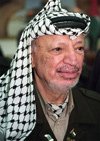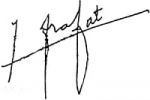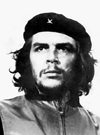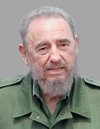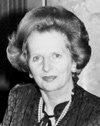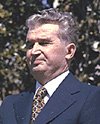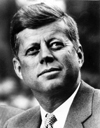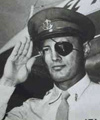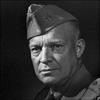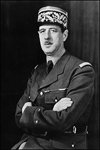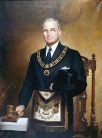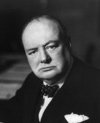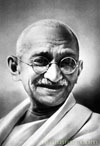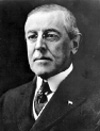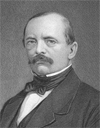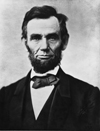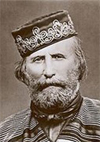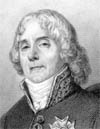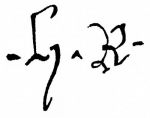Signatures of world politicians
Yasser Arafat
(1929-2004)
One of the most famous political figures of the second half of the XXth century. Chairman (President) of the Palestinian National Authority from 1993, leader of Fatah political party, Chairman of the Executive Committee of the Palestine Liberation Organization from 1969. One of the 1994 Nobel Peace Prize “For Peace Efforts in the Middle East”.
Ernesto “Che” Guevara
(1928-1967)
Latin American revolutionary, Comandante of the 1959 Cuban Revolution. Besides Latin America he also acted in the Republic of Congo. Full name – Ernesto Guevara de la Serna. He got his nickname “Che” in Mexico for interjection “che” typical for Argentinean Spanish, meaning “hey!”
Fidel Castro
Born in 1927.
Leader of the Cuban revolution, Prime Minister and President of Cuba. Ardent adherent of Marxism-Leninism. His government nationalized all the country’s industry, transport, communication, mass media and overwhelming part of land property. Upon disintegration of the USSR economic relations were cancelled and resumed in 2000 after visit of V.V. Putin to the country.
Margaret Thatcher
Born in 1925.
Prime Minister of Great Britain (Conservative Party of Great Britain) in 1979-1990. Her staying in this position war of record duration. She was nicknamed “Iron Lady” for inflexible compliance with a selected course. The first and the only one lady so far in this position.
Nicolae Ceauşescu
(1918-1989)
Romanian and international communist movement figure. General Secretary of the Central Committee of the Romanian Communist Party (RCP) from 1965, RCP General Secretary from 1969. Chairman of the State Council of Romania from 1967, first President of Romania in 974-1989. In Romania there was the personality cult of Nicolae Ceauşescu.
John Kennedy
(1917-1963)
35th President of the USA in 1961-1963. He was the first president born in the XXth century and the youngest elected president in history of the United States. He is considered to be the standard of American liberalism.
Moshe Dayan
(1915-1981)
Israeli military leader and politician. He was the Minister of Agriculture in 1959-1964, Minister of Defense of Israel in 1967-1974. Minister of Foreign Affairs in 1978-1979.
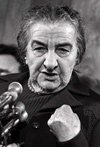

Golda Meir
(1898-1978)
Israeli stateswoman and public figure. In 1949 she was elected to the Knesset. Fourth Prime Minister of Israel in 1969-1974. She devoted her life to protection of the Zionism ideas. In 1975 she received the State Prize of Israel for her activities.
Dwight Eisenhower
(1890-1969)
American military leader, statesman and political figure, General of the Army (1944). Thirty-fourth President of the USA (1953-1961). He became worldwide known during World War II as the Supreme Commander of the Allied Forces in Europe. He was awarded the Soviet Order of Victory (1945).
Charles de Gaulle
(1890-1970)
French military leader and public figure. During World War II he was the symbol of the French Resistance. First President of the Fifth French Republic (1959-1969). A nuclear aircraft carrier of the French Navy, French airport, la Place de l’Etoile in Paris and a number of other commemorative places are named after him.
David Ben-Gurion
(1886-1973)
One of founders of Israel as well as one of leaders of Zionist and Zionist-socialist movement. In 1948-1953 and 1955-1963 (with interruption in 1961) he was the Prime Minister and Minister of Defense of Israel. His leadership led to victory in the Independence War (1948-1949) and the Sinai War (1956). In 1965 he founded opposition party RAFI.
Harry Truman
(1884-1972)
The USA statesman, 33rd President of the USA in 1945-1953 from the Democratic Party. Outside the USA many aspects of his policy? Especially international policy, are often criticized, but American historians consider him as one of the most outstanding presidents. In August 1945 he initiated atomic bombings of Hiroshima and Nagasaki.
Winston Churchill
(1874-1965)
Military man, journalist, writer, British statesman and political figure, Prime Minister of Great Britain in 1940-1945 and 1951-1955. Winner of the 1953 Nobel Prize in literature “for his mastery of historical and biographical description as well as for brilliant oratory in defending exalted human values”. According to the results of the 2002 BBC poll he was called the most outstanding Briton in history.
Mahatma Gandhi
(1869-1948)
Indian politician, founder of the Republic of India. Ideologist and one of leaders of national liberation movement of India. His philosophy of non-violence (Satyagraha) influenced national and international movements of supporters of peaceful changes.
Theodore Roosevelt
(1858-1919)
American politician, 25th Vice President of the USA, 26th President of the USA in 1901-1909 representing the Republican Party, winner of the 1906 Noble Peace Prize.
Otto von Bismarck
(1815-1898)
German statesman, prince, first Reich Chancellor of the German Empire (the Second Reich). Politician and diplomat also known as “Iron Chancellor”.
Abraham Lincoln
(1809-1865)
American statesman, 16th President of the USA. The first president representing the Republican Party, liberator of American slaves. National hero of American people. Abraham Lincoln birthday is a national holiday in the United States.
Giuseppe Garibaldi
(1807-1882)
National hero of Italy, military leader, one of leaders of Risorgimento (Italian unification movement), revolutionary, literary man. Italian patriot and partisan, legendary man.
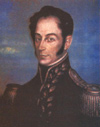

Simon Bolivar
(1783-1830)
Leader of the war for independence of Spanish colonies in South America. He liberated Venezuela, New Grenada (today – Colombia and Panama) and Kito Province (today – Ecuador). In 1819-1830 he was the President of Gran Colombia established in the territory of these countries. In 1824 he liberated Peru and headed the Republic of Bolivia established in the territory of Upper Peru and named after him. In 1813 the National Congress of Venezuela proclaimed him the Liberator.
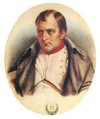
Napoleon I Bonaparte
(1769-1821)
Napoleon I Bonaparte – French military leader and statesman. French Emperor (1804-1814 and in March-June 1815). In 1799 he performed coup d’etat and became the first consul; in 1804 he was proclaimed Emperor. He expanded the territory of the empire considerably making the majority of West and Central European counties dependant on France.
By way of example of signatures of Napoleon Bonaparte, made by him at various stages of his life it is possible to trace influence of events on changes in handwriting.
Charles Maurice de Talleyrand-Périgord
(1754-1838)
French statesman, politician and diplomat, prince, occupied the position of the Minister of Foreign Affairs at several regimes starting with Directoire (1795-1799) to the government of Louis-Philippe I, the last monarch of France, titled king. The first Prime Minister in history of the country (from July 9 to September 24, 1815). During his life he swore 14 contradicting oaths. The name “Talleyrand” became common noun for craftiness, cunning and diplomatic mastery.
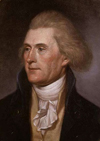
Thomas Jefferson
(1743-1826)
Prominent figure in the First American Bourgeois Revolution, author of the Declaration of Independence (1776), 3rd President of the USA in 1801-1809, one of the Founding Fathers. Outstanding politician, diplomat and philosopher of the Enlightenment. Main events in his presidency with positive evaluation include the Louisiana Purchase from France (in 1803) and the Lewis and Clark Expedition (1803-1806).
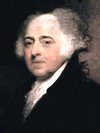
John Adams
(1735-1826)
Prominent figure in the First American Bourgeois Revolution, the first Vice President and the second President of the USA (1797-1801). Lawyer. He was known as a conservative politician but acted as a mediator in the conflict between Alexander Hamilton and Thomas Jefferson. He and his wife Abigail Adams founded and accomplished family of politicians. His son John Quincy Adams became the sixth President of the USA in 1825.
For the largest part ill handwriting in the world is caused by hurry.
(Lewis Carroll)
